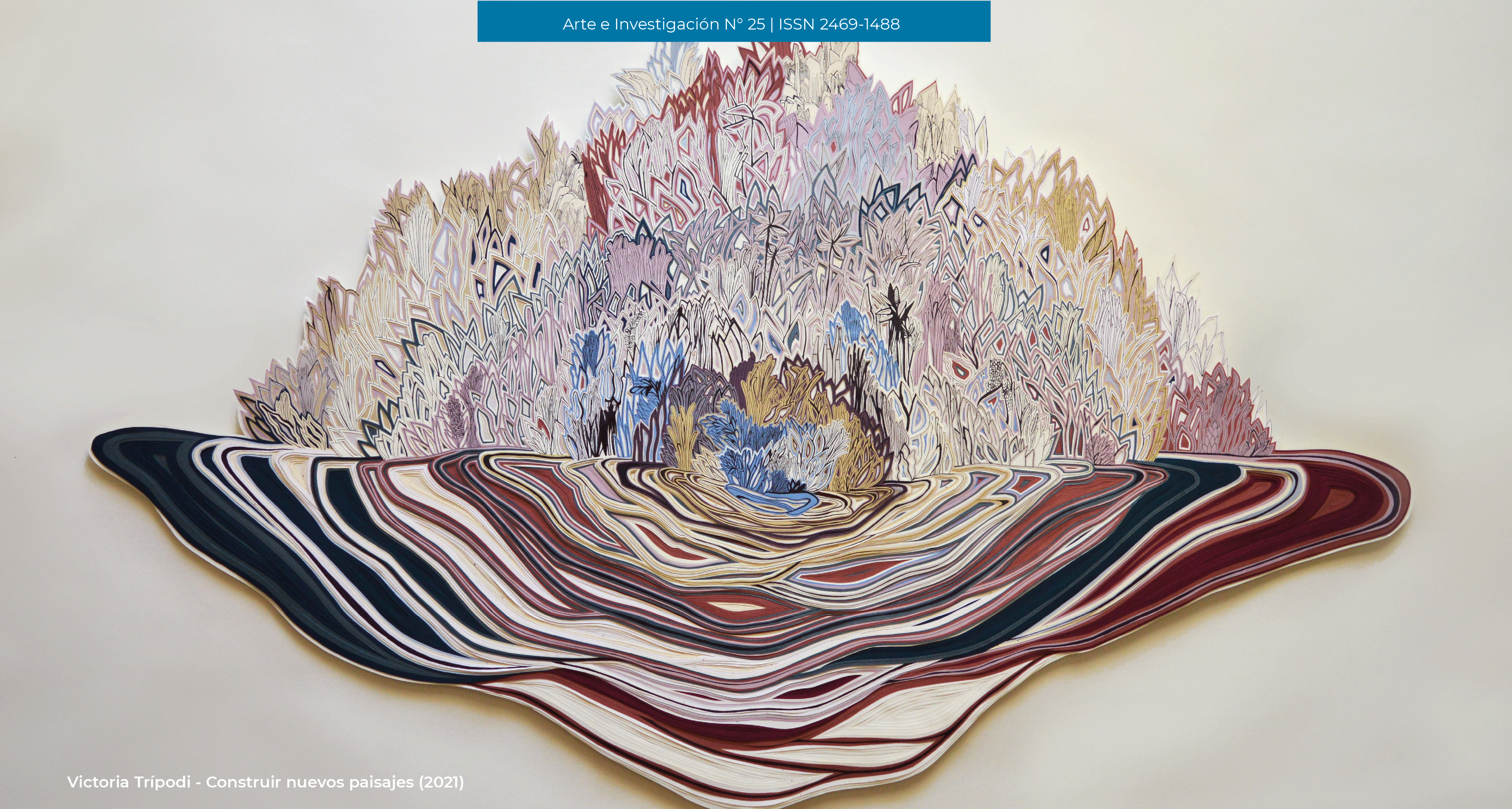Reproductions of Patriarchal Practices in Music Education
A Pedagogical Analysis of High School Practices
DOI:
https://doi.org/10.24215/24691488e109Keywords:
Music education, integral sexual education, gender perspectiveAbstract
This article analyzes two pedagogical proposals developed in Music Teacher Training Programs at a university level, intended to be implemented in High School in Buenos Aires province. It aims to identify practices that reproduce patriarchal logic in Music classes, based on the guidelines proposed for Artistic Education and Integral Sexual Education in Argentina. With the understanding that music education should cultivate critical individuals capable of exercising a divergent perspective, use and comprehend metaphor as an integral part of art, and expand their symbolic horizon through the inclusion of diverse musical practices, this framework proposes reinforcing the exercise of critical analysis of one’s own teaching practice, in order to, looking ahead, develop tools for creating a music education that ensure gender equity.Downloads
References
Aharonian, C. (noviembre/diciembre 2011). La enseñanza de la música y nuestras realidades [Versión preparada para ser leída]. XVII Seminario Latinoamericano de Educación Musical del Foro Latinoamericano de Educación Musical, Ciudad de la Antigua Guatemala, Guatemala.
Belinche, D.; Larregle, Ma. E. y Mardones, M. (1999). Apreciación Musical: hacia una interpretación del lenguaje a partir de la producción. Arte e investigación, 3(3). 26- 34. https://sedici.unlp.edu.ar/bitstream/handle/10915/46421/Documento_completo.pdf?sequence=1&isAllowed=y
Carabetta, S. M (2014). Ruidos en la educación musical. Editorial Maipue.
Diaz Mohedo, T. (2005). La perspectiva de género en la formación del profesorado de música. Revista Iberoamericana sobre Calidad, Eficacia y Cambio en Educación, 3(1). e1696-4713. https://dialnet.unirioja.es/servlet/articulo?codigo=1130344
Eslabon Armado y Peso Pluma. (2023). Ella baila sola. En Desvelado. DEL Records. González Ramos, A. M. y Torrado Martín Palomino, E. (2018). Cosificación y mercantilización de las mujeres: las tecnologías como instrumento de violencia. Sociología y tecnociencia, 9(1). https://doi.org/10.24197/st.1.2019.1-8
Green, L. (2001). Música, género y educación. Editorial Morata.
Israeloff, N., Otero, E. Sarlinga, M. y Equipo de la Diplomatura Superior en Educación Sexual Integral (2022) Los ejes de la ESI. [Clase 3]. Dirección General de Cultura y Educación de la Provincia de Buenos Aires.
Le Goff, J. y Truong, N. (2005) Una historia del cuerpo en la edad media. Paidós.
Ley 26150 de 2006. Programa Nacional de Educación Sexual Integral. 4 de octubre de 2006. D. O.
Ley 26206 de 2006. Ley de Educación Nacional. 28 de diciembre de 2006. D. O. No. 31062.
Lichi. (11 de octubre de 2022). Hijxs del Closet: La Ferni - “Quiero dar batalla, no explicaciones” [Archivo de video]. Youtube. https://www.youtube.com/watch?v=zyfSkLC7SUY
Morgade, G. (2006). Educación de la sexualidad desde el enfoque de género. Una antigua deuda en la escuela. Novedades educativas (184). 40-44. https://www.argentina.gob. ar/sites/default/files/educacion-en-la-sexualidad-desde-el-enfoque-de-genero-morgade.pdf
Natalucci, A. L. y Rey, J. (2018). ¿Una nueva oleada feminista? Agendas de género, repertorios de acción y colectivos de mujeres (Argentina 2015 - 2018). Estudios políticos y estratégicos, 6(2). 14-34. https://ri.conicet.gov.ar/handle/11336/103995
Núcleos de Aprendizajes Prioritarios de 2011.Resolución del Consejo Federal de Educación 141/11. Octubre de 2011. D. O. https://www.educ.ar/recursos/110573/nap-educacion-artistica-educacion-secundaria-ciclo-basico
Reguillo, R. (2012). Culturas juveniles. Formas políticas del desencanto. Siglo Veintiuno
Resolución CFE 111/10 de 2010. La Educación Artística en el Sistema Educativo Nacional. 25 de agosto de 2010. D. O. http://www.bnm.me.gov.ar/giga1/normas/14862.pdf
Segato, R. (2018). Contra-pedagogías de la crueldad. Prometeo Libros.
Small, C. (1999). El musicar: un ritual en el espacio social. Revista transcultural de música, (4), e1697-0101. https://www.sibetrans.com/trans/articulo/252/el-musicar-un-ritual-en-el-espacio-social
Take 6. (2008). Windmills Of Your Mind [Canción]. En The standard. Heads Up International.
Warner Classics. (2 de diciembre de 2020). Maria Callas sings “Casta Diva” (Bellini: Norma, Act 1). [Archivo de video]. Youtube. https://www.youtube.com/watch?v=s-TwMfgaDC8
Downloads
Published
How to Cite
Issue
Section
License

This work is licensed under a Creative Commons Attribution-NonCommercial-ShareAlike 4.0 International License.
The acceptance of the manuscript by the magazine means the non-exclusive cession of the property rights of the authors in favour of the editor, who allows the reuse, after publication (post print), under a license Attribution-NonCommercial-NoDerivatives 4.0 International. According to these terms, the material can be copied and redistributed by any means or in any format as long as a) the author and original source of the publication are quoted (magazine and URL of the work), access to the license is provided and whether changes have been made is mentioned; and b) the material is not used for commercial purposes.
The cession of non-exclusive rights means that after the publication (post print) in Arte e Investigación the authors can publish their work in any language, means and format; in such cases it must be mentioned that the material was originally published in this magazine. Such cession also means the authorization of the authors for the work to be collected by SEDICI, the institutional archive of the National University of La Plata, and to be spread in the databases that the editorial team considers appropriate to increase the visibility of the publication and its authors.
Moreover, the magazine encourages the authors to deposit their productions in other institutional and thematic archives under the principle that offering the society the scientific and academic production without any restrictions contributes to a greater exchange of the global knowledge.


































